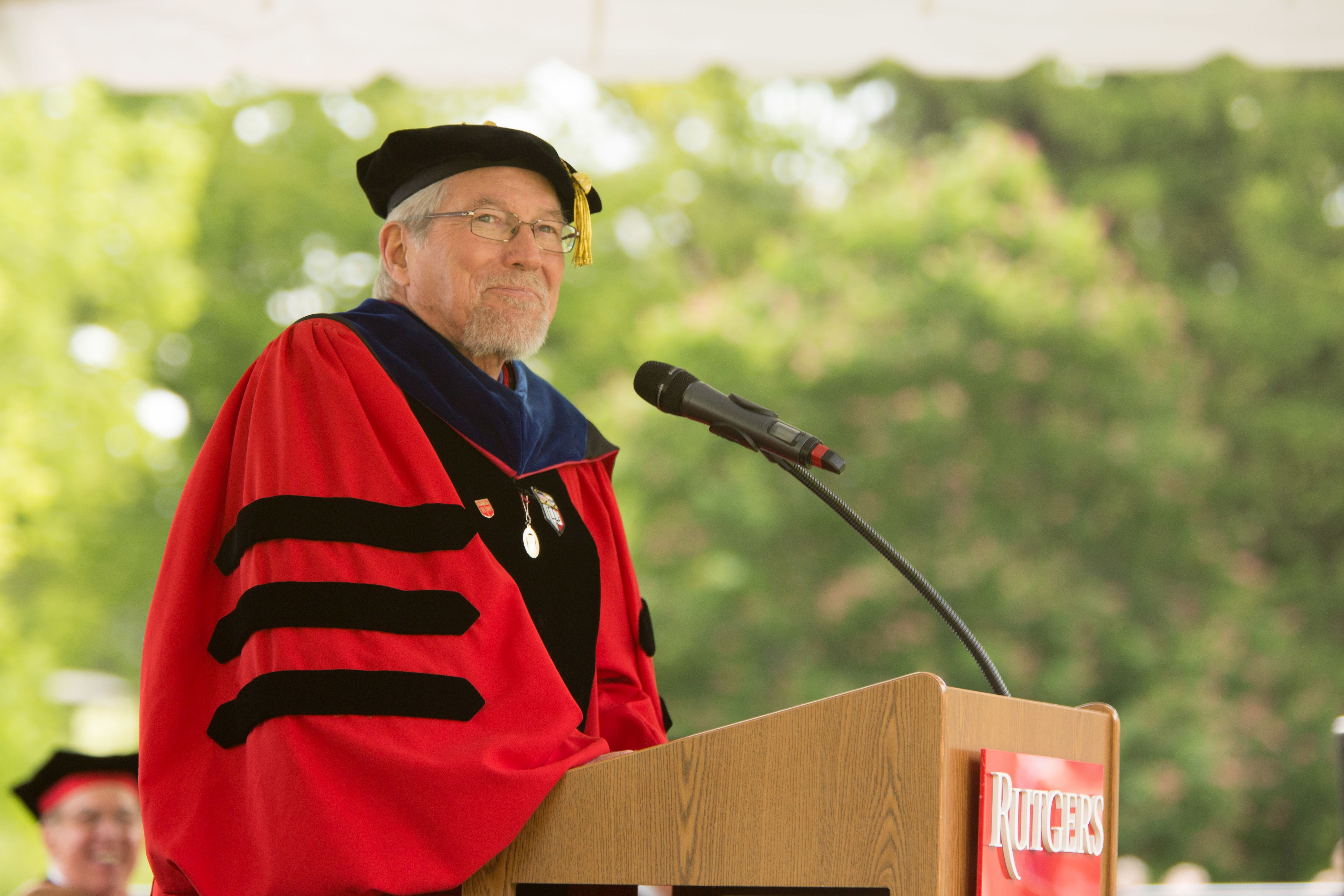
Executive Dean of the School of Environmental and Biological Sciences Robert M. Goodman. Photo by John O’Boyle.
My heartfelt congratulations to each of you in the Class of 2020! You are the 152nd graduating class from our school—the Rutgers School of Environmental and Biological Sciences.
Also, I extend my sincere hopes that you and your loved ones are safe and healthy.
If there ever was evidence that the world needs a flood of college graduates who have studied what you have studied and learned what you have learned, the proof is in COVID-19. COVID-19 raises challenges and future opportunities for all of you, no matter your major.
We all know that crises bring opportunities. Creativity, work ethic, imagination, innovation, personal values, knowledge, and commitment to community are today’s premier assets. Used wisely, these values will guide you as you each contribute to building a better future.
Robert K. Watson, the architectural pioneer famous for promoting sustainable building practices, once wrote, using a baseball metaphor, “Mother Nature bats last, and she always bats 1,000.”
Life-long learning is a must; let me recommend Mother Nature as your life-long teacher.
Other major American thinkers have brought us lessons from Mother Nature in their own teaching. Here are a few of my favorites:
John Muir, the 19th century naturalist and explorer who promoted what became the National Park System, taught us that in nature everything is connected to everything else.
Aldo Leopold, the 20th century environmentalist who wrote “Sand County Almanac,” taught us that how we use land and natural resources are ethical decisions.
Or in words from a traditional Native American saying: “We do not inherit the land from our ancestors, but borrow it from our children.”
Rachel Carson, author of “Silent Spring,” taught us that we pay dearly when we poison the earth’s land and its waters.
Marjorie Stoneman Douglas, who saved the Everglades, taught us that swamps and other wetlands are far from worthless, but provision us with essential ecosystem services.
Lester Brown, Rutgers Class of 1955, whose scores of books teach us about food, land, people, water, and energy, taught us that sustainability requires a circular mentality and shared, and integrated, societal goals.
Sylvia Earle, the intrepid deep-sea explorer, teaches us that the world’s ocean is the most profoundly important earth system that we still barely understand.
And now you will write the next chapters:
How do you respond to the challenges and opportunities flowing from COVID-19?
I urge you NOT solely to focus on resurrecting what we call “normal” as in “when will we ever get back to normal?”
Let’s learn from what we are experiencing; let’s learn from Mother Nature, and do better.
There is much about human society that needs to be improved. Food insecurity and famine persist. Health and economic inequalities grow. Climate change exposes stark disparities between those whose behaviors cause change and those who suffer. And the emergence of new infectious disease and invasive pests continues.
But also notice some upsides: In just a few months, pollution is down. Crime is down. Astonishing acts of human kindness are abundant.
The coronavirus has spread but also spreading is a contagious streak of human compassion and community spirit –most visibly among healthcare workers, but also community good works of all kinds.
Volunteerism and community service are up. Food banks and farmers markets and community activities of all kinds have been mobilized to meet people’s needs. And we at Rutgers have pitched in too, from COVID-19 diagnosis to remote instruction to support of our communities, locally to globally.
These examples and countless others point us to a better world than went before: Not just a new normal but a better new normal, one that you will help create.
So, think of COVID-19 as your final exam.
I know you will ace it, because you were educated at Rutgers!!

